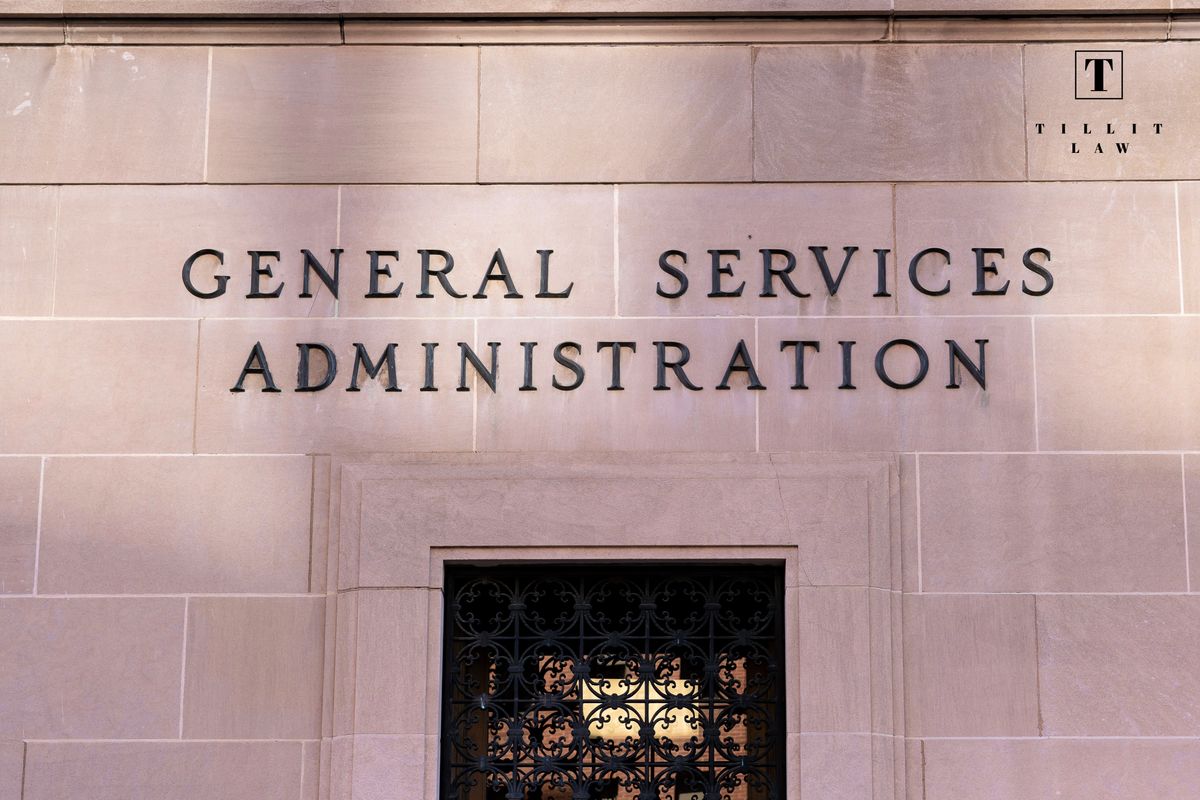The General Services Administration (GSA) Federal Supply Schedule (FSS) program allows federal agencies to acquire services from pre-approved vendors via simplified acquisition procedures of Federal Acquisition Regulation (FAR) Part 8. When utilizing the FSS program, procuring agencies may not purchase “open market items,” which are any services not already listed on a vendor’s GSA schedule. At the same time, the services on a vendor’s schedule may not always directly correlate to the requirements of the solicitation. In such situations, the relevant inquiry is whether the required services are within the scope of the vendor’s schedule contract, as reasonably interpreted. In deciding whether their GSA schedule covers services being sought in the solicitation, contractors should determine whether the required function in the solicitation is the same as the function covered under their schedule contract. In this regard, services are not considered open market items if they are within the scope of particular line items on the FSS contract. Additionally, while the broader, general scope of a schedule contract and the description of its Special Item Numbers (SINs) are relevant in determining the scope of line items, such descriptions are not dispositive to resolve whether the services are covered by the schedule contract.
In B-418790, a post-award bid protest decision issued by the Government Accountability Office (GAO) on August 31, 2020, the services offered by the awardee in response to the solicitation requirements were determined to be within the scope of its schedule contract. In that protest, the protester alleged that the awardee was ineligible for award of an IT professional services contract because the awardee’s GSA schedule did not include labor categories specific to the brand-name IT professional services sought by the solicitation. The GAO examined the descriptions of the line items (or labor categories) on the awardee’s GSA schedule contract in the context of the generic IT services descriptions of the overarching SINs and concluded that the brand name IT services were within the scope of the awardee’s schedule contract. The GAO explained that although the awardee’s schedule contract did not include line items for the specific brand name IT professional services, the awardee could still match the work described in the solicitation requirements because the line items on the awardee’s schedule did not limit it to providing the relevant services for any specific brand name software. Therefore, the awardee’s schedule contract line items effectively subsumed the brand name services to be provided. Significantly, while the generic description of the overarching SIN was considered to contextualize the descriptions of the particular line items, the determining factor underlying the GAO decision was that the IT professional services required by the solicitation fell within the scope of the line items already on the awardee’s GSA schedule contract.
In B-419190, a GAO bid protest decision issued on December 14, 2020, the protester alleged that in response to solicitation requirements, the awardee had quoted IT research and advisory subscription services that were not listed on its schedule contract. The procuring agency maintained that it had reviewed the awardee’s schedule contract and determined that it listed the services required by the solicitation as part of a larger product offering. In resolving the protest, the GAO reviewed each service that was allegedly an open market item and found that the awardee’s schedule contract did, in fact, list all of the services, albeit some of the services were included under product offerings that belonged to a lower tier than the one offered to the agency. Under the circumstances, the GAO found that it was reasonable for the agency to determine that the higher-tier product offered to the agency subsumed all the features of the lower-tier products. The GAO also noted that it was permissible for the awardee to customize the product line already listed on its GSA schedule to meet the agency’s needs for a particular requirement. Therefore, upon reviewing the specific line items in the awardee’s schedule contract, the GAO ruled that the awardee’s FSS schedule covered the services required under the solicitation.
Meanwhile, in B-421682.3, a decision issued on November 30, 2023, the GAO found that the services being acquired under a Request for Quotation (RFQ) were outside the scope of the protester’s schedule contract. The RFQ sought to establish a Blanket Purchase Agreement (BPA) for air charter services for the mass air transportation of noncitizens in federal custody. The protester was found ineligible for award because its GSA schedule did not include a line item for a 300-passenger aircraft, which was a requirement of the RFQ. The protester argued that although its schedule contract did not include a line item for the chartering of an aircraft with capacity of more than 240 seats, it should nevertheless be permitted to compete because the general scope of its schedule contract was for air chartering services, and consequently, the requirement for the chartering of a 300-passenger aircraft was within the scope of its FSS schedule. However, the GAO remained unpersuaded by the protester’s arguments. It concluded that since the maximum capacity of the aircrafts offered on the protester’s schedule was only 240, the protester’s schedule contract did not contain a line item for a 300-passenger capacity aircraft. Furthermore, for similar reasons, a 300-passenger aircraft was also not subsumed within any of the line items on the protester’s schedule. Consequently, the GAO found that the RFQ requirement concerning the chartering of a 300-passenger aircraft was outside scope of the protester’s schedule contract.
In utilizing GSA FSS schedules, the federal government benefits from receiving tailored services from pre-approved GSA schedule vendors via streamlined acquisition procedures. However, such vendors may only provide services that fall within the scope of their FSS contracts. When resolving concerns regarding whether an FSS vendor is offering services outside the scope of its schedule contract, the relevant inquiry is whether the services are actually included on the FSS contract, as reasonably interpreted. While the broader, general description of a schedule contract and its SINs may be relevant in determining the context and scope of services being offered under particular line items, it is not dispositive to resolve whether the services are included on the FSS contract. Therefore, when proposed offerings are challenged for being out of scope of a schedule contract, it is not sufficient for the vendor to argue that the general description of the schedule or its SINs broadly relate to the pertinent solicitation requirements. Instead, the vendor must either show that the functions being sought under the solicitation are identical to the functions covered by line items on its schedule contract or completely subsumed by them. Ultimately, contractors should be mindful that the determination of whether any services or products offered by an FSS vendor are within the scope of a schedule contract is a fact-specific inquiry that may need to be resolved on a case-by-case basis.
This Federal Procurement Insight is provided as a general summary of the applicable law in the practice area and does not constitute legal advice. Contractors wishing to learn more are encouraged to consult the TILLIT LAW PLLC Client Portal or Contact Us to determine how the law would apply in a specific situation.





